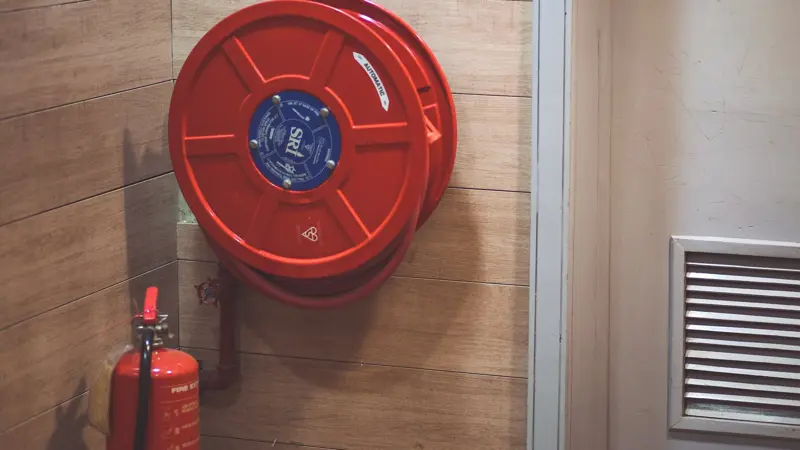Scottish Fire and Rescue Services release new fire safety campaign

Earlier this month, the Scottish Government and Scottish Fire and Rescue Services released a new fire safety campaign, focusing on safety in high-rise homes. The new campaign outlines how to prevent fires in the homes and what to do if one does start in the building. Bearing in mind the tragic events at Grenfell Tower in 2017, this safety advice has never been more relevant.
What to do if there is a fire in your building
Most high-rise domestic buildings are designed with fire safety in mind and are built to resist the spread of fire. The advice from the Scottish Fire and Rescue Services is that if you stay put, you’ll stay safe. Fire is not likely to spread from one flat to another. If there is a fire in your building, but not in your flat, you are advised to stay in your home and keep the front door closed unless you are directly affected by the heat, smoke or fire, or if the Fire and Rescue Service or Police instruct otherwise.
If you do find yourself trapped:
• Go to ‘safe room’ with a window and a phone
• Call the Fire and Rescue Service as soon as possible
• Stuff bedding or towels around the door to keep smoke out
• Keep the window open to allow clean air
• Try attracting attention by waving a sheet if it is safe to do so
Steps to stop fires happening
Fires are most commonly started in kitchens, by cigarettes, or when using electrical appliances, but there are steps you can take to minimise the risks.
In the kitchen
The kitchen is one of the most used room in your home and can contain many fire hazards. Be extra careful in kitchens when it comes to fire safety.
• Never leave cooking unattended. Always keep an eye on your cooker when it is on.
• Did you know that chip pan fires cause one fifth of all accidental fires in the UK each year? Deep fat fryers or oven chips are a safer option compared to open chip pans. If you do use a chip pan, it’s advised to only fill it up no more than 1/3.
When smoking
Cigarettes have always been a major fire hazard. The best way to stay safe from cigarettes is to stub them out for good, but it can be an incredibly difficult habit to quit.
• Put cigarettes out properly in a sturdy ashtray
• Do not smoke in a chair or in bed if your have been drinking alcohol or feel sleepy
• Keep lighters and matches away from children
When using electricals
According to Electrical Safety First, every year, over half of accidental domestic fires in the UK are caused by electricity.
• Never overload sockets with too many electrical appliances
• Always switch electrical appliances off at the wall
• Do not leave appliances on when you’re sleeping or out of the house
In common areas
Minimising the risk of fire in communal areas also means ensuring the risk of your neighbours.
• Keep stairs, landings and corridors clear for escape. Don’t keep bikes, prams or other objects in these areas that could obstruct escape
• Do not leave personal items you have arranged to be taken away in common areas
• Ensure rubbish is properly disposed using communal bins provided. Rubbish lying around in refuse areas can easily be set on fire
• Contact your Property Manager if you have any questions regarding common areas
Prepare for an escape and get early warning
The probability of a fire starting tends to be unlikely. However, it’s always best to be prepared just in case. • Close all doors before you go to bed, especially the lounge and kitchen
• Have a plan and escape route in place
• Make everyone in your household aware of the escape plan
• Ensure your smoke and heat alarms are in working condition and test them weekly
If you have to leave…
• Leave the building as quickly as possible, closing doors behind you to avoid smoke and fire spreading
• Use the stairs to get to the ground floor – never take the lift
Raise the alarm
Finally, as soon as it is safe to do so, raise the alarm by calling the Fire and Rescue Service on 999 and tell other residents who could be affected or who are nearby.
The advice, produced by the Scottish Government and the Scottish Fire and Rescue Service, is being delivered to high-rise homes from December and will also be available in libraries and community centres in all 15 local authorities with the properties. You can find out more here.
Guidance is also being published for those responsible for fire safety in high-rise buildings, including councils, housing associations, owners and private landlords.
If you have any questions regarding fire safety within your building, do not hesitate to get in touch with our offices in Glasgow, Edinburgh or Aberdeen.


